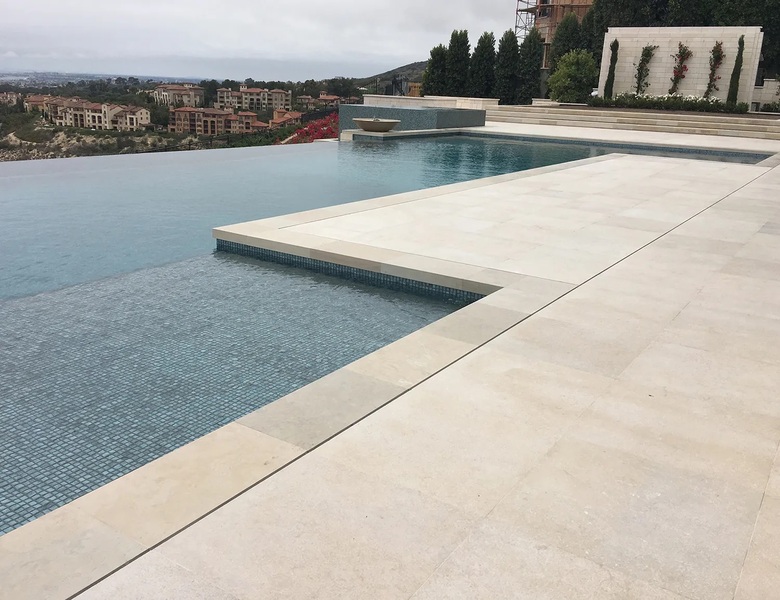
In the world of luxury living, a pool can be the crown jewel of any backyard oasis. However, alongside the glamor and leisure a pool provides, the safety of swimmers should always be a paramount consideration. One common hazard associated with swimming pools is the potential for slips and falls around the pool deck area. Today, let’s embark on a journey to discover the best non-slip options to maintain a safe, yet stylish pool deck environment.
Understanding the Importance of Non-Slip Surfaces
A pool deck, while a fantastic lounging and socializing area, is also a common site of accidents. Splashing water can make the area slippery and, thus, unsafe, especially for young children and the elderly. Therefore, when choosing a material for your pool deck, it’s essential to opt for a non-slip surface that ensures the safety of all pool-goers.
Types of Non-Slip Surfaces for Pool Decks
When you start your quest for the best non-slip options, you’ll encounter a wide range of materials, each boasting unique properties. Here’s a look at some of the top contenders:
Concrete: Concrete remains a popular choice for pool decks due to its durability, versatility, and affordability. However, plain concrete can become quite slippery when wet. The solution lies in adding a textured finish, like broom finish or exposed aggregate, which adds traction while maintaining aesthetic appeal. Concrete can also be stained or dyed to match your outdoor décor.
Pavers: Made from concrete, stone, or brick, pavers offer a natural, elegant appearance with inherent non-slip properties. They also provide the advantage of being individually replaceable if damage occurs. However, they may require sealing to maintain their color and to prevent the growth of mold or algae.
Natural Stone: Natural stones, such as travertine, limestone, and bluestone, are exceptional choices for pool decks. Not only do they present a luxurious aesthetic, but their porous nature also gives them excellent non-slip characteristics. Travertine, for example, stays cool even under the hottest sun, making it a popular choice for pool decks.
Composite Decking: Composite decks, made from a mix of wood fibers and plastic, are a modern solution to pool deck safety. They offer the charm of wood without the slippery surface or high maintenance requirements. The textured finish provides adequate traction and is also resistant to rot and insects.
Adding an Extra Layer of Safety
Beyond selecting a non-slip material, there are additional measures you can take to ensure the safety of your pool deck:
Sealants and Coatings: Various anti-slip coatings can be applied to your pool deck regardless of its material. These coatings typically contain grit or texture that can significantly improve traction.
Safety Mats and Deck Tiles: These can be added to high-traffic areas or places prone to becoming especially slippery. They come in various designs and colors to seamlessly blend with your pool deck aesthetic.
Routine Maintenance: Regular cleaning of your pool deck can prevent the buildup of algae and mold that might lead to a slippery surface.
Design Considerations for a Non-Slip Pool Deck
While safety is vital, we understand that design and aesthetics also play an important role in choosing your pool deck material. Luckily, with modern innovations, you don’t have to compromise. Many non-slip options offer a multitude of design possibilities. Whether you prefer a traditional look with stone pavers or a sleek, modern look with composite decking, there’s an option to suit your taste.
Furthermore, consider the overall layout of your pool area. You may want to use different materials for larger pools or decks for different areas. For instance, you can combine the luxury of natural stone with the practicality of textured concrete or use safety mats in areas where children primarily play.
Selecting the perfect non-slip surface for your pool deck requires a balance of safety, aesthetics, and maintenance. With a variety of options available, you can find a solution that ensures safety without sacrificing style. Remember, the best non-slip surface will reduce accidents and enhance the enjoyment and appeal of your pool environment. After all, your pool is meant for relaxation and fun, and with a safe deck, you can dive into the fun worry-free!
Key Takeaways
- Safety should be a top priority when installing or renovating a pool deck, as slippery surfaces can lead to accidents.
- Non-slip materials for pool decks include textured concrete, pavers, natural stone like travertine or limestone, and composite decking.
- Concrete is popular due to its durability, versatility, and affordability. However, a textured finish is recommended to provide adequate traction.
- Made from concrete, stone, or brick, Pavers offer natural elegance and non-slip properties but may require sealing to maintain color and prevent mold or algae growth.
- Natural stone options, such as travertine, limestone, and bluestone, look luxurious, and their porous nature makes them excellent non-slip materials.
- Composite decking, a mix of wood fibers and plastic, provides the charm of wood without the slippery surface or high maintenance, and its textured finish adds to its non-slip quality.
